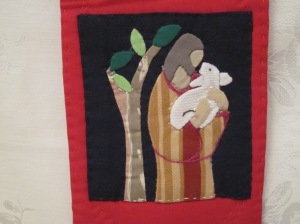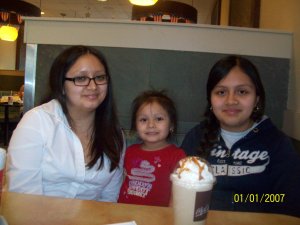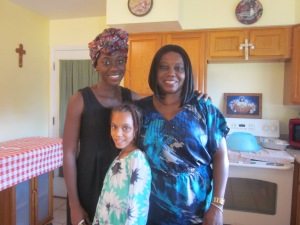’It's all About Love"
Opening Prayer: Our God of the second chance, God of love, thank you for loving us into life now and forever. Help us to love you with all our hearts, and to love all of our neighbors especially those who are most difficult to love. We ask this through Your Beloved Jesus, who lives with You and the Holy Spirit, One God forevermore. Amen.
Liturgy of the Word
(I am using The Inclusive Bible translation by Priests For Equality.)
2 Chronicles 36:14-17, 19-23 “…for God had compassion for the people…”
Psalm 137 “May my tongue cleave to the roof of my mouth if I forget You”
Although the people in exile cannot joyfully sing their much loved hymns they remember God
Ephesians 2:4-10 “God, loving us so much, brought us to life in Christ”…We are “God’s work of art…”
The Gospel John 3:14-21 God’s great love transforms us into light for the world
Homily
The readings for this fourth Sunday of Lent are about God’s boundless love for us. God’s love can transform our lives so that we can reflect the love and light of God. How good it is to have a God of love and not a God of vengeance or indifference. How good it is to be loved. And yet, I wonder, how do we really know, embrace and experience this love and make it known to others beyond empty words? Do we have a relationship of love or of obligation or negotiation with our God?
A rousing yet plaintive and jaded Tina Turner song goes: “What’s love got to do with it? What’s love but a second hand emotion?” Well, dear friends, love has everything to do with it, and it is way beyond any type of emotion. It is the fullest giving of self and the very acts we engage in with one another and for justice on behalf of the least of us. It is what we long for and what God has freely given to God’s works of art-to each one of us.
The reading from the Hebrew Scriptures (2 Chronicles) causes us to ponder our infidelity to God while God is faithful to us. We learn that, like the Hebrew people, we may wander in exile but there is a way to go home again. For those who have had ruptures in family and community life that have felt like exile, going home again is all the more sweet. Even as our loving God is home for the outcast, the Church must also be home. Yet so often it is the church that rejects. How sweet it would be to be able to go home to our church families when they have initially rejected us.
I think with much compassion about those we minister to and with. I think of some of our families who have members who belong to gangs that live by gun violence. The families are in a bind-they simply do not know how to love these youth without condoning the violence that is then brought down on the heads of all in the family. I think of the struggles of families with mentally ill members who are loved and accepted and those where they are cast out. (The book Behind the Wall by Elin and Mary Widdifield tells the revealing and poignant stories of parents struggling with the mental illness of beloved children of all ages). I think also of the gay youth I have known who have been all but banished from families. I think of those who ended their own lives unable to negotiate their “gayness” or gain acceptance in their families. I think of those who were happily able to reconcile with families and restore loving bonds. I think too of PFLAG parents, those parents who come together to give and gain support as parents of gays and those on the GLBT spectrum. I think of the PFLAG group here in Southwest Florida who were told they could no longer meet in their parish hall by Bishop Dewane of the diocese of Venice. Until the church grows in love there will be no going home again for so many. (The picture of the Franciscan Saint is Fr. Mychal Judge, a gay priest who died saving others on 9/11).
The Epistle reading is particularly poignant and full of meaning: “God loving us so much brought us to life in Christ”. God’s ultimate giving of Self in Christ gave us life. We are literally born of love, God’s love for us. And it is forever. Wow! Yet so many seem unaware of this deep and abiding love. In part they do not see it reflected in human eyes or feel it in human touch, and, in part, when it may be there they can’t see it. I am ministering to a woman who is so depressed that she can see no hope or light- all is darkness. She often says “My life is over”. Practical situations are hard for her to solve because she can only see the downside of everything. Similarly a young man I am counseling has made a great deal of progress in conjunction with psychiatric treatment and medications but he still states that life is not worth living. There are many people who feel as these two do and it is a challenge to love them into life- we must try with all our hearts but perhaps ultimately only God can do that. Yet, if we can see God’s “work of art” in all people, perhaps we can help those who are in exile to find their way home to God’s loving arms again.
This is the heart of our Gospel text today: “For God so loved the world that he gave his only Son that whoever believes in Him should not perish but have eternal life.” According to Pope Francis in his homily on the Wednesday in the Domus Sanctae Marthae on 4/10/13:
“The Lord saves us by His love: not with a letter, nor with a decree, but with his love, a love so great that it led him to send his Son, who, ‘became one of us, walked with us,’ and this saves us.”
While our loving God is so much more than the pronouns ‘he, his or him’, encompassing all that is best in female and male, our loving Father/Mother is in love with us and we are created as God’s works of art according to Ephesians 2:10, and this gift of special life carries with it the responsibility and the ability to not only be but to do good works ourselves. Wow!
Indeed in Jesus’ walk on this earth he lived inclusion, compassion and healing. He welcomed the stranger and the outcast, calling women and ordinary folks and outcasts into fellowship and discipleship. Jesus saw virtue in those dismissed by religious authorities. He opened eyes and brought light into darkness both literally and metaphorically. He also spoke truth to power, so much truth that they had to kill him. Christ showed us how to live and through his death and resurrection Christ lives in us. We are fully alive in Christ. But it is not about words, right words or right thoughts about God, it is all about love and the power of love to dispel darkness and to heal the broken-hearted. The more broken we are by life, the more God is there to make us whole again. In the Gospel we are asked to “believe” in Christ to gain eternal life. But the word “believe” here is more like hold as “beloved” in the Aramaic language of Jesus. To believe in God, in Christ, is to LOVE God, to believe in as a spouse or parent or best friend believes in the beloved person in their lives- not to have a set of correct beliefs or thoughts. To believe in is to “belove” God. To have faith in is to be faithful to and to deeply trust God, not to recite right words. Loving God and one another must come from deep in our hearts and not from our heads. And that kind of loving transforms our deepest selves. We then can reflect the love of God and the light and love of Christ to others, even those who are not easy to love for whatever reasons.
When the father of the epileptic boy that Jesus healed in Mark 9 said, “I believe, help my unbelief” (Mark 9:24) he taught us how to pray in the midst of ignorance and doubt. We might in the context of John 3 and Ephesians 2:4-10 say “Christ you are my beloved, help me to learn to love”. Then we may be transformed into the art work we were designed to be, and become the light and love that others so desperately need. Let us love and let us live so all may live, now and forever. Amen.

















No comments:
Post a Comment